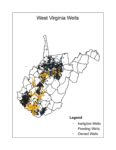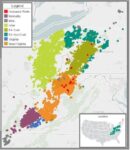This article originally provided by The Observer-Reporter
Complaint forms available when pressure tactics used in search for natural gas underground.
G. Jeffrey Aaron
It’s now easier for landowners to lodge complaints about the landmen who knock on their doors and try to strong-arm them into signing a lease for the rights to natural gas that may be under their property.
In the past, property owners could complain to the state Attorney General’s Office about harassing or misleading tactics used by some landmen trying to lease the tracts of land that drilling companies explore for natural gas deposits.
In 2004, the property owners did complain, especially to representatives from the Attorney General’s Office in Binghamton at gas leasing seminars.
Most speakers accused landmen of using misleading information and pressure tactics and discouraging them from consulting attorneys as they pursued leases for energy companies.
Two years later, in 2006, the office announced a 12-point agreement that regulated how landmen were to deal with prospective clients.
Fortuna Energy Inc., with local headquarters in Big Flats, was the only company named in the settlement and was ordered to cover the $100,000 bill for the investigation.
But the guidelines affect all the energy companies looking for gas in the Southern Tier.
Now, the New York State Farm Bureau and the American Association of Professional Landmen (AAPL), headquartered in Texas, have collaborated on a formal complaint form that can be downloaded from the landmen association’s Website at www.landman.org.
The complaint forms also will be distributed at gas leasing seminars sponsored by the state Farm Bureau.
Farm Bureau field adviser Lindsay Wickham credited the AAPL for developing the complaint form and bringing the bureau into the mix.
But the landmen’s group had good reason, he said. The Farm Bureau’s endorsement goes a long way with property owners who have come to rely on the agency for other services.
And the endorsement came with a cost; the bureau has arranged for the state Attorney General’s Office to compile the forms and check the complaints.
The landmen’s group would have preferred that another agency not be involved.
In spite of the 2006 agreement, the abuses continue.
Wickham recalls a complaint he received Wednesday from a Broome County landowner who was told that if he didn’t sign a lease, the drillers would set up next to his property, drill horizontally and extract the gas under his land without giving him a penny for it.
Ashur Terwilliger, president of the Chemung County Farm Bureau, remembers how a landman convinced an elderly woman to extend her lease a year before it was set to expire and before she could learn about the successful drilling nearby that could have caused her to renegotiate for better terms.
AAPL spokesman Jim Bourbeau admitted problems do occur and said, “There are people out there who shouldn’t be out there.”
He has fired unethical landmen under his supervision. But, he added, not all landmen are required to join the AAPL and therefore are not under his jurisdiction.
Just how far the complaint forms will go toward cleaning up the negotiations for natural gas leases is anyone’s guess.
Property owners tell stories about landmen who have gotten into trouble for tricking people into signing leases merely being assigned to a different area.
Hopefully, with the attorney general’s involvement, punishment will now be stiffer.
In a perfect world, the landman knocks on a door, introduces himself, identifies which company he represents and provides a copy of the complaint form before he gets down to business.
In a perfect world, the landowners would know all there is to know about their rights.
But the complaints that popped up as the gas-rich Trenton-Black River formation was explored, and those that will undoubtedly appear as the Marcellus Shale deposits are explored, point to an imperfect world in the gas leasing arena.
Marcellus Shale is estimated to hold three times the amount of natural gas produced annually in the United States.
Property owners already are reporting that landmen leasing for rights to explore the formation are downplaying that as they rebuff landowners’ attempts for high bonuses and royalties.
And landmen complain that property owners use past successes of drilling operations to substantially up the ante for drilling on their land.
With the potentially huge amount of money at stake, it will take more than a complaint form to inject a much-needed dose of integrity into natural gas lease negotiations.
Ultimately, a well-educated public will be its own best defense.
But until then, the acceptance of the complaint forms and supporting documents by the attorney general should bring some additional force of law into an arena where is there is very little.











